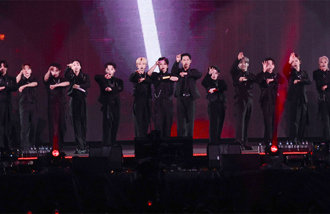[Opinion] Culture Ministry Sets Another Fiasco
[Opinion] Culture Ministry Sets Another Fiasco
Posted June. 16, 2008 05:54,
Liberal activities who are leading the candlelight rallies have demonstrated their advantage in cultural power. Starting the protests with a song titled Korea is a democratic Republic, they incite a sense of unity among the participants. Then, they drum up the climate with popular songs and dances. In other words, to induce public interest, they have successfully tinted the protests with cultural elements. On the contrary, the Lee Myung-bak administration has shown a great weakness in this respect. Inflexible and monotonous tone of industrialization seems to dominate the administration. The Lee government has not shown any significant culture policies yet, which is now seen as incompetent.
Recently, the Ministry of Culture, Sports and Tourism appointed three nominees to its subordinate art organizations. But two of them fell off the shortlist. First, the ministry appointed Seoul National Universitys former music school dean Kim Min to Seoul Arts Center. Faced with fierce opposition from theatrical and musical circles, it scrapped the plan, and promised to restart the screening procedure. Similarly, Lee Yeong-jo, who was nominated as head of the National Opera Company, voluntarily withdrew in the face of opposition by some music industry figures.
The arts center case was a total fiasco from the very beginning. Originally, the ministry intended to select a candidate out of a four individual pool set up upon recommendation. A screening commission was organized, and the pool was set up without consulting the recommended themselves. Thus, three on the shortlist declined the invitation, leaving only one person Kim Min. He ranked third when the arts center recruited candidates for its president last year. Under these circumstances, the commission should have recruited more. But the procedure went on for some unknown reason, and people doubted the objectivity of the procedure.
Classical singers revolted when the ministry nominated former composer Lee as head of the opera company. The friction is part of the long-lasting feud between the two groups. Still, the ministry should have induced a bipartisan agreement before announcing the nomination. The ministry is located near Gwanghwamun, which is the epicenter of the candlelit protests.
Looking down at the protests, which in part were triggered by the administrations botched-up nomination of senior government posts, the ministry repeated the same mistake again. Weakness in cultural competitiveness is not a small thing to brush away. According to the hegemony theory of Antonio Gramsci, who founded the Italian communist party, the group that leads the culture sector can induce voluntary consent of the public. The Lee administration should roll up its sleeves to learn the cultural power, rather than complaining at the past socialist 10 years.
Editorial Writer Hong Chan-sik (chansik@donga.com)






